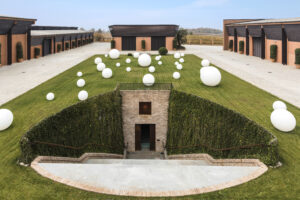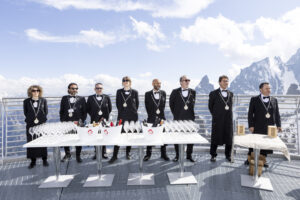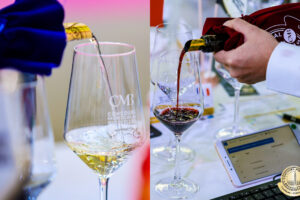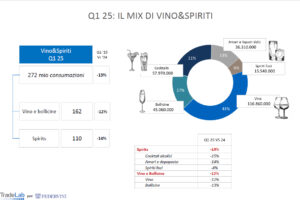2023, barring resounding and improbable recoveries in the last months of the year, while still crucial for companies’ balance sheets, will be remembered as a year in which, Italian wine, after years of attacking markets marked by significant and steady growth, will have played defense. And if in the end the result will be a good break-even, or something similar, the sector will have to be content, looking forward to better times. Because it is now well established that the effects of the crisis are also being felt in the wine world. As confirmed by data released at the Wine Monitor Forum no. 10, today in Bologna, organized by Nomisma and enriched by the contributions, among others, of Federico Zanella, president & ceo Vias Imports, among the main wine importing realities in the U.S. (with wineries such as Cataldi Madonna, Basilisco, Statti, Vie di Romans, Principe Pallavicini, Velenosi, Giovanni Rosso, Produttori del Barbaresco, Pecchenino, Leone De Castris, San Leonardo, Fattoria del Cerro, Castello dei Rampolla, Campo alla Comete, Rocca di Frassinello, Salvioni, Còlpetrone, Argillae and Speri, among others), the top executives of two of the most important Italian wine realities such as Ettore Nicoletto, president & ceo Angelini Wines & Estates, and Lamberto Frescobaldi, at the helm of Frescobaldi, and Paolo De Castro, MEP and president of the Nomisma Scientific Committee.
In the first 8 months of 2023, Nomisma Wine Monitor explains, the quantities of Italian still and sparkling wines purchased in the top 12 international markets (those that, to be clear, weigh more than 60% of world wine imports) are down 8%. The same fate befalls sparkling wines, the category that, in the last decade, had instead grown without interruption, which mark a specular -9%: these are changes in line with the market average, with a negative trend that spares few exporting countries, and that also sees our first outlet market by value, the United States, reduce imports from Italy by -13%.
“In the U.S. market, all major wine exporters are suffering due to a reduction in average consumer spending capacity. Only New Zealand, with its Sauvignon Blanc, does not seem to be experiencing a crisis, posting export growth of more than 20% in the first eight months of this year compared to the same period last year”, points out Denis Pantini, head of agribusiness and Wine Monitor Nomisma.
But it is no better in the domestic market. Wine sales in the retail channel flex - in the cumulative to September - by more than -2% in volumes, with higher reductions in large-scale distribution in the case of still wines (-3.8%). Only sparkling wine purchases are growing (+2.3%), but the figure hides a “substitution” effect that sees an increase in generic (cheaper) sparkling wines at the expense of denomination, Doc and Docg wines. Unfortunately, forecasts on the consumption behavior of Italians for the next 6 months - deduced from a specific Consumer Survey, conducted by Nomisma - are also not positive: net of those who will not change their wine purchases compared to the current situation (at least 6 out of 10 Italians, but in the context of a generalized reduction in consumption), there is a 16% of consumers who plan to reduce them, with the aim of saving on spending in general.
In this complex and uncertain scenario, it is especially small wine companies that are suffering the most, partly due to an internal financial situation that is often undermined by heavy debts that risk exploding as a result of the current squeeze on applied interest rates. Suffice it to say, in fact, that for capital companies with turnover under 10 million euros, financial charges on Ebitda range from 11% for companies between 2 and 10 million euros, to 37% for those with lower turnover. But, small as they are, we are talking about entities that represent 85% of the entrepreneurial fabric of the wine sector, to which almost 50% of the employed workers are attributable.
But it is not just a question of financial structure: a survey carried out by Wine Monitor on Italian wine companies showed that among the needs considered a priority for facing the challenges of the current economic scenario are strategic planning, optimization of production processes and internationalization.
“It is precisely from the need to provide concrete answers and qualified support to the growth of Italian wine companies that Nomisma decided to launch Wine Monitor Consulting. Thanks to the market knowledge and expertise gained in the sector over more than ten years of activity, a wealth of information that is unique for its depth and completeness, and the network developed with distributors, commercial and financial operators and top managers, Nomisma is able to support companies in the sector in their growth path, from the elaboration of the strategic development plan to its execution, supporting the effective grounding of the planned actions. Specifically, the Wine Monitor Consulting team guarantees qualified and ongoing support in the intermediate stages of development and in the project management necessary for the implementation of any type of intervention, such as internationalization paths, optimization of production and organizational processes, and digitalization”, says Marco Govoni, head of consulting at Nomisma.
One positive aspect emerging from the reflections shared at the Wine Monitor Forum is the closing of negotiations on the new European regulation on geographical indications, PDOs and PGIs. As reiterated by Paolo De Castro, president of Nomisma’s Scientific Committee and rapporteur for the European Parliament on the reform, “with this new regulation, Italian wines with geographical indications will be able to enjoy greater protection from evocations on the European market, including in the panorama of Internet domains with an immediate geoblocking system, putting an end to the imitation attempts that periodically emerge to the detriment of our oenological excellence. In other words, those loopholes in the system that allow the reputation of appellations to be unduly exploited will be eliminated once and for all, since applications for the registration of traditional mentions, such as Prosek’s, will no longer be able to be considered as identical to or evocative of PDO or PGI names”.
Copyright © 2000/2025
Contatti: info@winenews.it
Seguici anche su Twitter: @WineNewsIt
Seguici anche su Facebook: @winenewsit
Questo articolo è tratto dall'archivio di WineNews - Tutti i diritti riservati - Copyright © 2000/2025








































































































































































































